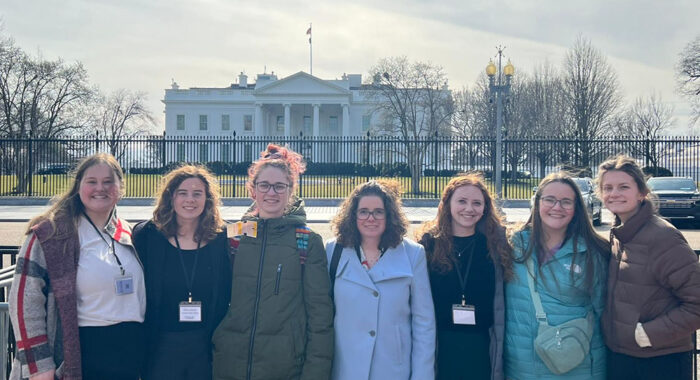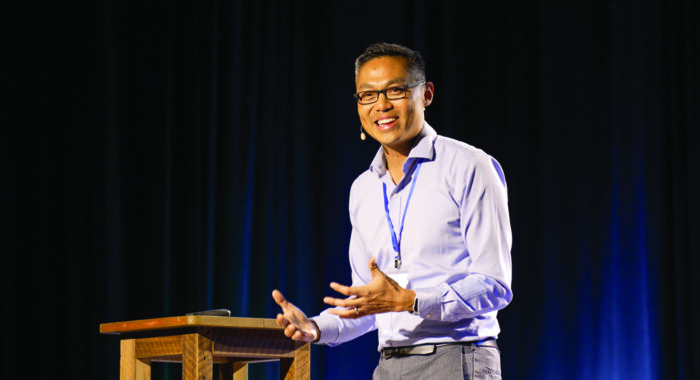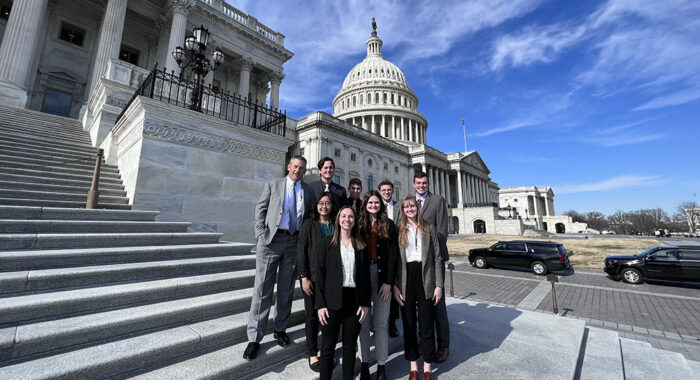Amy Hanson is a speaker, writer and consultant with a passion to help older adults discover a life of Christ-centered meaning and purpose. In her 20s, she led a ministry of over 300 adults 50 and older at a church in Las Vegas. She is the author of “Baby Boomers and Beyond: Tapping the Ministry Talents and Passions of Adults Over 50.” Hanson has a bachelor’s degree in Bible and family ministry from Manhattan Christian College, a master’s degree in gerontology from Abilene Christian University, and a Ph.D. in human sciences from the University of Nebraska.

What are the societal impacts of the 75 million Baby Boomers entering the age of retirement?
Baby Boomers have always made an impact on society — partially because of their sheer size! We built more schools to accommodate them, and as they moved into the workforce we made more jobs for them. As they head into retirement, the government, travel and leisure industry, retail outlets and car manufacturers are adjusting to the bulge of an aging population. Some see this as a time of doom and gloom and think that Boomers will drain social security and put a strain on the health care system. But I think the aging Boomers present huge opportunities for greater service, volunteerism and intergenerational relationships. Boomers want to remain active. They are not interested in being called a “senior,” nor are they content to simply retire to the rocking chair on the front porch. They want to make a difference.
What are the big life issues that Baby Boomers are concerned with?
Boomers are dealing with relationships with adult children, becoming grandparents, caring for aging parents and navigating their own health challenges. While many Boomers are still working, others have retired, and nearly all are thinking about retirement and what it will look like.
What happens when older church members feel marginalized by a prioritization of reaching a younger generation?
Older adults care deeply about young people and want to see them come to faith and live vibrant lives for Christ. Making a mark on future generations is one of the greatest desires of today’s older adults. Being invited to be a part of the outreach will go a long way in helping older adults not feel forgotten. An empty nest couple in my church, invited three newly married, Millennial couples into their home for pizza. Both generations loved the interaction and when they see each other on Sunday mornings, everyone feels that they belong. There is nothing wrong with a church focusing on reaching younger generations, but reaching the young does not mean we need to move away from valuing the older.
How can churches relate to Baby Boomers and Millennials at the same time?
Boomers and Millennials have a lot in common. They both care about social justice issues and making a difference with their lives. Both have an entrepreneurial spirit and are not afraid to try new things. Both groups are technologically savvy, and both are interested in strong friendships that cross generational lines. Focus on these things. Don’t be afraid to put people together and see what happens.
How should pastors and church leaders counsel Baby Boomers as they consider retirement plans and goals?
Society says we spend the first half of our lives working hard, so we can relax and focus on ourselves during the remaining years. As leaders, we need to speak a counter culture message. We need to showcase those who are serving in their retirement years — the ones who go on the mission trip, invite their unchurched neighbors to dinner, mentor kids in the underprivileged school. And we should teach biblical concepts that show how God uses people in their later years (e.g., Caleb in Joshua 14 or Anna in Luke 2).
Never before have so many adults moved into the later years of life with so much health and vitality. How can churches capitalize on this?
Expand the way you engage older adults in serving. Sometimes we assume that the only jobs for older adults are folding the church bulletin, being a greeter or making coffee. These are important tasks, but we’ve got to call people to something greater. We need to take responsibility for helping people identify their passions and show them how those can be used for ministry. We need to come alongside the retired CEO and the former school teacher so they can leverage their experience and make a kingdom impact. This might mean bringing retired individuals onto your team as unpaid staff. There are endless possibilities as to how we can unleash the time, experience and resources of this generation.
What characteristics are adults over 50 looking for in churches or ministries?
Boomers look for environments where they can have fun, form meaningful relationships and have their needs addressed. They are looking for purpose and will respond to opportunities where they can utilize their gifts and talents to help others, but this may not be inside the walls of the church. They may be more likely to serve at the homeless shelter than teach a Sunday school class. When it comes to getting involved, they respond to opportunities that provide flexibility and are short-term commitments. They are more apt to say yes to a project if they can do it on their own time and in their own way, rather than being asked to be present at a weekly meeting for the next year.
Why should church plants and churches made primarily up of young adults seek to recruit those over 50? And how can they reach out?
Psalm 78 speaks of one generation speaking of the things of God “so the next generation would know them, even the children yet to be born, and they in turn would tell their children.” Intergenerational relationships are powerful, and they are an effective way for faith to be shared. Older adults want to leave a legacy. Invite them to be a part of something of eternal significance and to give of their time and energy so others can find their way to God.
This article originally appeared in Evangelicals magazine.



 View All Articles
View All Articles 





















